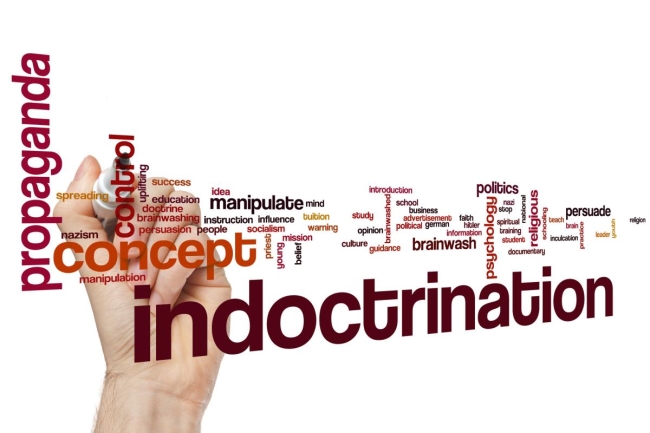You have /5 articles left.
Sign up for a free account or log in.

ibreakstock/iStock/Getty Images Plus
Like in dozens of other states, the Ohio General Assembly is considering a bill defining a list of “divisive concepts” that cannot be “promoted” by colleges. As a professor of ethnic studies, I have feared this moment and the restrictions it will place on my teaching. Ohio’s Substitute HB 327, the Promoting Education Not Indoctrination Act, directs each university to rewrite their rules for tenure to incorporate these bans, putting teeth behind its censorship.
Some of the seven ideas whose promotion is banned by HB 327 seem commonsensical: no one should teach that “individuals of any race … are inherently superior or inferior”—indeed, ethnic studies was founded on the mission of dispelling just such ideas. But other prohibited concepts are so broad they encompass well-established fields of research and debate. To ban discussing that “an individual … is inherently racist … whether consciously or unconsciously” runs counter to a rich vein of psychological research into cognitive bias. To ban the debate over whether “individuals should be adversely or advantageously treated … on the basis of their race” is effectively to outlaw studying any possible remedies for racist harm.
For the first time in Ohio history, HB 327 would define what “promoting” a concept means for higher education. Promotion is “seeking to advance or encourage support of a partisan philosophy or religion by indoctrination, coercion, compulsion, or teaching an individual or group of individuals to accept a set of beliefs in a one-sided, biased, and uncritical manner.”
When I first read this phrase, I was offended, as any conscientious educator would be. Throughout my career, I have strived to create an atmosphere in which students can feel comfortable to express their views and experiment with their ideas, no matter how face-plantingly wrongheaded they may be. Countless times I’ve held my nose and given an essay arguing that race is inherently biological an A because it was well written and cited the relevant sources, even though these were Murray, Rushton and Davenport—on the wingnut fringe of academia. I’ve often prided myself on finishing an entire semester without my students having the slightest inkling of what my personal politics were.
While walking across campus after a particularly disappointing Introduction to Ethnic Studies class in which a pair of bros entertained each other by trying to rattle me with their casual racism, it suddenly hit me: this bill is not my oppressor. It is my liberator! HB 327 would not outlaw indoctrination, coercion, compulsion or one-sided teaching in general! Our wise lawmakers are not simply passing a needless bill saying that university professors should not engage in such teaching behavior in all cases. They are only prohibited from doing so to promote these concepts, not to suppress them!
In a democracy, what is not prohibited is permitted, and to prohibit one narrow activity implies approval of similar ones outside the law. Moreover, if these “divisive concepts” are so dangerous and destructive that the state of Ohio has a compelling interest in banning them, then I must certainly have the right to use the tools at my disposal to eradicate them from my classroom.
The GOP is about to unshackle me from having to suffer the stupidity and the insolence of the bros. They have handed me my mace and my shield. I can embrace the principles stated in this bill and deputize myself as their champion ,and woe be to all undergraduates who dare to dabble with them!
When the next suburban Susan tells the class that it is OK for white folks to use the N-word because “everyone’s a little bit racist” (prohibited concept No. 3, “that an individual … is inherently racist”), I will pounce. When some small-town Travis blurts out his stereotypical characterization of some minority group (a violation of concept No. 7, “that an individual’s moral character or worth is necessarily determined by the individual’s race”), I will rally every particle of my decade of advanced training and all the books and articles I’ve read and written to break down their resistance until they beg me to fill their heads with the true state-approved knowledge I possess. If someone dares to argue in my class that America is the greatest country in the world (a clear violation of the first prohibition against the belief that “individuals of any … national origin are inherently superior”) I will drive their beliefs into the ground like Sherman marched through Georgia. I will make all these students cry, and when they do their tears will be the glorious victory of the party of Lincoln.
Some may allege that by launching my own little cultural revolution to root out those who secretly harbor any of the seven deviant and prohibited concepts, I am in violation of principle No. 4, that any person should be made to feel guilty for actions committed in the past by someone of their own race. Clearly, I’m not, because I’m making my students feel guilt and shame for their own racism, not someone else’s.
There is one other great unintended opportunity afforded by the blank check professors are being handed to enforce these thought crimes. If faculty members around the country do as I do and flunk all the racists, there will be many more opportunities for people of color, as they express prohibited beliefs far less commonly. Who needs the Supreme Court to uphold affirmative action in admissions when our antiracist inquisition will free up so many seats?
I’ve finally made my peace with Big Brother, and I have the party of President Trump to thank for my liberation. Or, should I say, comrade Trump.




